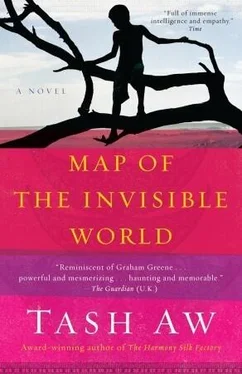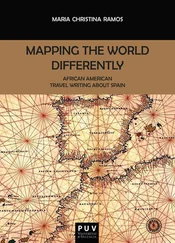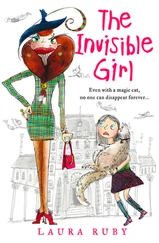Tash Aw - Map of the Invisible World
Здесь есть возможность читать онлайн «Tash Aw - Map of the Invisible World» — ознакомительный отрывок электронной книги совершенно бесплатно, а после прочтения отрывка купить полную версию. В некоторых случаях можно слушать аудио, скачать через торрент в формате fb2 и присутствует краткое содержание. Год выпуска: 2010, Издательство: Spiegel & Grau, Жанр: Современная проза, на английском языке. Описание произведения, (предисловие) а так же отзывы посетителей доступны на портале библиотеки ЛибКат.
- Название:Map of the Invisible World
- Автор:
- Издательство:Spiegel & Grau
- Жанр:
- Год:2010
- ISBN:нет данных
- Рейтинг книги:4 / 5. Голосов: 1
-
Избранное:Добавить в избранное
- Отзывы:
-
Ваша оценка:
- 80
- 1
- 2
- 3
- 4
- 5
Map of the Invisible World: краткое содержание, описание и аннотация
Предлагаем к чтению аннотацию, описание, краткое содержание или предисловие (зависит от того, что написал сам автор книги «Map of the Invisible World»). Если вы не нашли необходимую информацию о книге — напишите в комментариях, мы постараемся отыскать её.
comes an enthralling novel that evokes an exotic yet turbulent place and time—1960s Indonesia during President Sukarno’s drive to purge the country of its colonial past. A page-turning story,
follows the journeys of two brothers and an American woman who are indelibly marked by the past — and swept up in the tides of history.
Map of the Invisible World — читать онлайн ознакомительный отрывок
Ниже представлен текст книги, разбитый по страницам. Система сохранения места последней прочитанной страницы, позволяет с удобством читать онлайн бесплатно книгу «Map of the Invisible World», без необходимости каждый раз заново искать на чём Вы остановились. Поставьте закладку, и сможете в любой момент перейти на страницу, на которой закончили чтение.
Интервал:
Закладка:
Adam looked at Karl’s furrowed brow and tired, red eyes. He moved from the table and felt Karl’s grip on his arm loosen and fall away limply. Karl remained at the table staring blankly at the remnants of their dinner, which lay on the chipped china plates, illuminated by the stark light of the single bulb hanging low over the table. It was as if they both knew that by the next morning Adam would be gone, and there was nothing Karl could do to stop him.
The idea of Jakarta or any other big city held no terror for Adam. For several weeks now he had been reconstructing his own metropolis, rebuilding it in his mind as he went about his daily chores. While sweeping the yard he summoned a vast flat plain circled by distant hills; while feeding the chickens he painted an aquamarine sky, troubled by rich rain clouds. After dinner he would hurry to bed, longing for that intense, magical hour when he could return to the focal point of his Jerusalem: a neat modern bungalow with whitewashed brick walls, a roof of red clay tiles and a compound filled with plants in pots. This was the house where his mother lived. There were a few cats — sleek blue gray ones — which his mother would pick up now and then and caress. There was a child too — his brother, Johan — but it was more difficult for Adam to picture this boy, who resisted Adam’s attempts to bring him to life and so remained consigned to the shadows. Adam concentrated instead on constructing the streets around his mother’s house. They were clean and modest, busy with scooters and becaks and bicycles, lined with houses like his mother’s, simple and unadorned, lived in by decent people; but beyond this unsullied heart the city grew darker, murky with unseen danger. There were wide avenues that stretched into the distance, running into nothingness; there were great silvery buildings full of people doing things that Adam could not comprehend; there were areas of brilliant colorful light and slums where there was no light at all. Sometimes the streets were full of urchins and millionaires, sometimes there would be no one.
He imagined this city into existence, and now it seemed more tangible than the barren place where he lived. He knew he had to leave. He knew he had to find this faraway city.
The ferry was not as big as he had expected and there were many people waiting to board. The bus journey from the other side of the island had not been so bad, and he had a pocketful of dollars that he could feel pressing on his thigh. Setting off from home that morning he was so light-headed with excitement that he almost felt sick. It had been one of those rare, cool mornings when the sun kept low behind a thin veil of cloud, and there was no dust in the air, just a hint of rain. But now, standing alone at the docks, the sun high, he was hot and tired. The boat that lay just beyond the jetty seemed too flimsy to withstand the crossing to Java. It must once have been painted gaily in greens and yellows, but only a few curled flakes of paint still clung to the dark, slimy timber. Its single deck was already full of people, but the crowd nonetheless insisted its way forward, bottlenecking at the gangway. There was no shouting, no agitation, just an eerie hum of voices as people tried to force their way onto the boat. Adam could not understand. There were men reaching across from the edge of the boat to take children whose mothers held them out pleadingly, and occasionally a bag would be tossed from the crowd onto the boat, from invisible owner to unidentifiable recipient.
Adam noticed a boy standing next to him. He was older than Adam and wore a clean T-shirt with a bright orange globe on it; he did not look like the other boys hanging around the docks. “You’ll want to hurry or you’ll miss your chance to go across,” he said.
Adam squinted, shielding his eyes from the sun.
“Everyone’s leaving because of the drought. They think it’s better over there, over in the big cities where there are foreigners, but it isn’t. I’ve come from there, I should know.” He laughed as if he had told a joke and Adam could not tell if he was serious. “Oy! It’s one big turd, this whole country!” he shouted in the general direction of the ferry, then giggled. “There’s no escape!”
Adam began to move away.
“Hey, do you want to get on board?”
“No thanks,” Adam said. “I’ll come back tomorrow.” He did not know how he would achieve this; he had no idea where he would sleep or eat or hide from the crowds: Tomorrow seemed an eternity away.
“It will be the same story tomorrow, my friend,” the boy said, catching up with Adam, “and the day after and the day after and the day after. But listen, I can get you on board.”
Adam stopped and looked at the boy. He looked normal, just like Adam. “How?”
“I know people here. People who can get you on board.”
“Really?”
“Sure. All it takes is a bit of money. You have money, don’t you? We don’t need much — enough for a pack of cigarettes, plus something for me. Hey, fair’s fair, isn’t it? I’m only asking for some coffee money, nothing more.”
Adam hesitated but found himself nodding.
“Don’t worry, I like you. You’re my newest friend! Don’t give me anything now. When you get on the boat, a friend of mine will come and find you. I’ll tell him you’re my buddy — just give him enough cash to buy some kretek . How about that? My god, you’re so helpless, look at you. Okay, don’t worry, don’t give him anything. We’ll do it for free. This is your lucky day — we’ll do you a favor. Just remember, if you ever get to Jakarta and make it big, remember me: Sunny.” He pointed at the logo on his T-shirt. “That’s me, unmissable, unforgettable, just like the sun.”
“Thank you,” Adam said. “But how do I get on the boat?”
“Okay,” Sunny said, putting his hand around Adam’s shoulders, guiding him back toward the overcrowded jetty. His voice dropped and he sounded very serious. “This is the hard part. Stand with me in the crowd, pretend we’re just going to go forward. That’s good, just like that. Slow down, just ease up a bit. I’m going to leave in a few seconds, but don’t panic, I’ll be back — that’s it, just there, steady now, not too fast. Wait until I come back for you. Don’t shout or draw attention to yourself, just wait here for me. Good luck.”
Adam felt the hot crush of bodies around him, the sour smell of perspiration making him feel ill. The crowd did not seem to be moving forward, and Sunny had vanished. Ahead of him there was a little girl holding a painted cage with a songbird in it. She stared at Adam with limpid eyes.
“They’ve closed the gangway,” someone said.
“Shit, it’s the third day I’ve missed that boat.”
“Can you afford to bribe someone? I can’t.”
“Come on, let’s go. No chance today.”
When the crowd had dispersed Adam remained on the docks with the nursing mothers and listless infants and old men and women who did not dare to venture too far from the jetty. Tomorrow there would be another boat, they said, as they watched the boat draw away, carving a smooth V in the steel blue water behind it. It seemed to move so slowly that Adam felt he could have swum after it. He waited for Sunny for a very long time before giving up.
His throat began to feel numb from thirst and he could not swallow. He walked back toward the village, beyond the coconut groves where some families had begun to build makeshift shelters from lengths of tarpaulin and driftwood they had found on the shore. He would buy some food in the village, he thought, and he would find somewhere to sleep. Someone would give him a bed. They would not refuse him, for he had money, American dollars.
He stopped at a shop that sold drinks. There were men playing cards and drinking coffee, and Adam suddenly felt very hungry. He wanted a bun, one of those sticky sweet rolls that Karl bought him whenever they went into town. Across the shop there was a brown box sitting on a counter, stained with grease that seeped through the cardboard in patches: imaginary countries on a fantastic map of the world.
Читать дальшеИнтервал:
Закладка:
Похожие книги на «Map of the Invisible World»
Представляем Вашему вниманию похожие книги на «Map of the Invisible World» списком для выбора. Мы отобрали схожую по названию и смыслу литературу в надежде предоставить читателям больше вариантов отыскать новые, интересные, ещё непрочитанные произведения.
Обсуждение, отзывы о книге «Map of the Invisible World» и просто собственные мнения читателей. Оставьте ваши комментарии, напишите, что Вы думаете о произведении, его смысле или главных героях. Укажите что конкретно понравилось, а что нет, и почему Вы так считаете.












